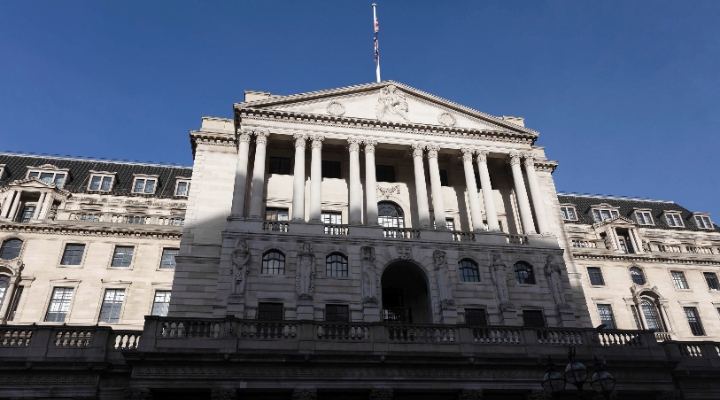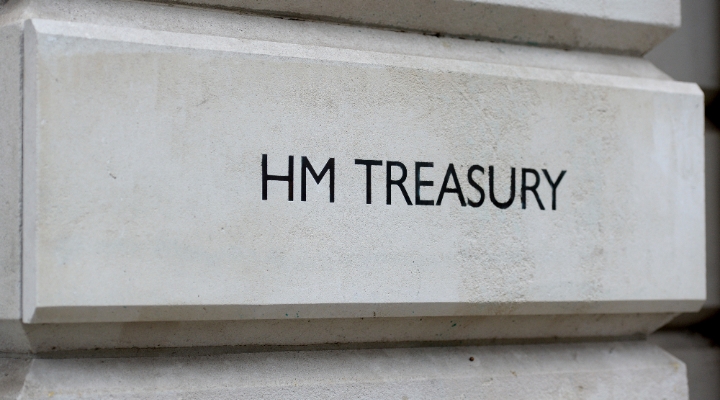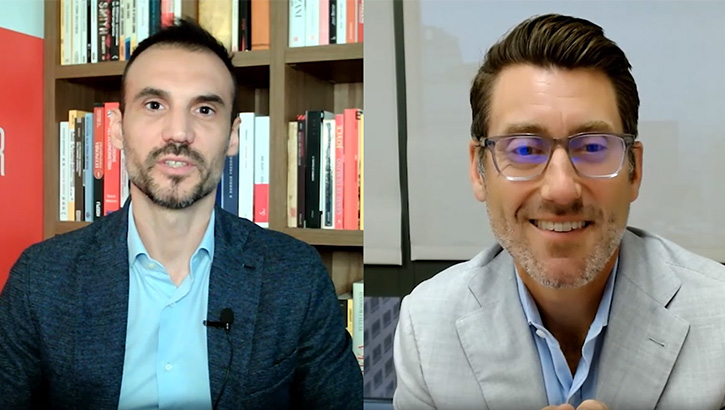
Investing in UK government debt (or "gilts") has become popular as yields have risen. In this guide we look at the key factors and potential risks as central banks eye rate cuts
Would you lend money to the British government?
Setting aside the moral issue of whether it would spend the money wisely, it's never been easier to do so. Until recently, if you wanted to buy a bond at issue you had to post a paper application to the Debt Management Office, including a cheque, and you would find out in due course whether you had been successful. My italics indicate just how exasperating this is!
Now you can buy UK government bonds (or gilts) through certain UK online investment platforms. With some above-inflation yields on offer after years of minuscule yields, this once-"boring" asset class is attracting a new wave of buyers. Handily, the UK government is planning to issue more debt in the next financial year than the current one to fund public spending, as confirmed in the March 6 Budget.
Key Things You Need to Know About Gilts
Are gilts a "buy-and-forget" asset class like cash?
Not exactly. Here are some things you need to know before buying your first.
Check When it Matures!
Government bonds generally have the "expiry date" in their description: if you hold it until maturity, you (should) get your money or "principal" back. This is less of an issue for bonds expiring in 2025, and more so for the bond expiring in 2073. If you're over 50, this is a long time to wait. The longer the date, the more sensitive it will be to interest rate changes.
Sam Benstead, fixed income specialist at interactive investor (ii), says the most popular direct bonds among ii customers are gilts maturing within the next four years, "most likely because investors are holding the bonds until maturity to pick up a fixed return from the UK government." Likewise, AJ Bell's most popular gilt (at the beginning of March) was one maturing at the end of January 2025, the company says.
Are You Buying at Issue?
Most likely you are not actually buying the gilt directly from the government at the date of issue, you are buying it from another investor. You're effectively buying in the secondary market so the bond may have some "miles on the clock" already; depending on when the bond last paid a coupon, you may be entitled to some partial payment after you take it over. This requires a calculator and a calendar and a sharp brain. In reality, the investment platform can do the legwork and collect the coupons for you.
As well as the income owed to you, when you buy the bond also affects the price you pay: a 10-year gilt with just one year before maturity will be priced differently than a 10-year gilt with nine years before maturity.
Note that dividend stocks are less complicated in this respect - the ex-dividend date is a neat cut-off point that determines if you're entitled to any income. You don't get a "partial" dividend as you would with a bond.
Check The Coupon AND The Yield!
The "fixed" part of fixed income refers to the coupon. 10-year gilts offer a coupon of 4.38%, so for every £100 invested you get £4.38 every year for 10 years. The yield itself is more fluid and depends on Bank of England interest rates (currently 5.25%), along with inflation expectations. If interest rates fall to 4% by the end of this year and inflation keeps falling, getting paid £4.38 for every £100 invested over 10 years looks like a good deal.
Many gilts pay coupons semi-annually, so you get paid every six months.
Like the maturity date, the coupon yield is included in the name of the bond. For example, "Treasury 2.75% 07/09/2024" expires on September 7, and pays a 2.75% coupon.
Is it Trading at Par, Discount or Premium?
To stick with this example, the 10-year gilt is currently trading at a premium; this means you pay over the odds for that £100. This means that, come maturity, you still get the £100 back, not the extra you had to pay initially. So you've locked in a capital loss. Some investors are happy to do this to get access to the yield on offer, plus the perceived safety of lending to a sovereign government like the UK. In a financial crisis, there's often a rush to buy government debt for this reason.
Conversely, if you buy a bond trading at a discount, there’s a "double whammy" effect – if you are buying below par, say at £96 rather than £100, you are getting that bond cheaply BUT you get the £100 "face value" back at maturity – and collect the coupons along the way.
Here "yield to maturity" or "redemption yield" is a key concept - this is the return assuming all cash flows are received as expected and the capital is returned at maturity.
If you plan to sell the bond before the maturity date, this will affect both your capital gain AND the yield you get. Again, the return depends on the price paid for the bond at the outset.
Sometimes this is a profitable move, other times not. But you may know in advance whether you need the money, so a cash account could offer greater liquidity in this case. Buying a 2073 gilt is probably not sensible if you plan to use that money for a loft conversion in 2025.
Remember: There's an ETF For Everything These Days
In addition, ask yourself: can I get this exposure elsewhere, and more cheaply? Vanguard, iShares, and others all offer UK gilt exchange-traded funds with a basket of government bonds. These can offer different yields and different maturity dates.
Finally, check the access levels – not all investment platforms offer the ability to buy gilts online. Hargreaves Lansdown, AJ Bell and Interactive Investor offer this service. But check whether you can buy index-linked gilts online too.
Do I Pay Tax on Bonds?
One of the advantages of ISAs is they shield investors from capital gains tax. But gilts are CGT free, which is considered an advantage by tax planners and IFAs, particularly if you've maxed out your £20,000 ISA allowance.
You can also hold gilts in ISAs and Sipps, which shields the income from tax. But outside of an ISA, coupons can be subject to income tax. There are different inheritance tax rules associated with holding gilts in your ISA or Sipp.
Ask yourself: how much have I got to spend? As they often trade in "lots", gilts may be more suitable for those able to make lump sum investments rather than via a monthly payment. It's not the same as buying shares in a fund or trust that offers exposure via fractional ownership. There are investment minimums that need to be taken into account. Again, ETFs can bridge that gap, if you do indeed want bond exposure with smaller amounts of money. Again, check with your IFA if these are suitable routes for you.
Next, keep an eye on external events. You may have noticed an election is in the offing, most likely in 2024, which could see a change in government after 14 years. Labour has some ambitious spending plans, and they will be funded by debt as well as taxes. What kind of returns investors can expect on buying this debt always has some risk attached to it.
"With Labour near-certain to take the reins in government in November, we sense there will be increased scrutiny on the UK’s fiscal plans in the months ahead. This is a factor that could see a rise in the risk premium attached to UK fixed income assets, and we continue to look for gilts to underperform on a medium-term basis," says RBC BlueBay chief investment officer Mark Dowding. Gilt yields spiked after the 2022 Mini Budget, so volatility can rear its head quickly, even with a usually-tame asset class.
When Will The Bank of England Cut Rates?
Ah, the big question.
It's important to keep an eye on the Bank of England. Firstly, it is selling government bonds into the market, in a reversal of Quantitative Easing. More bonds in the market reduces scarcity and keeps a lid on prices. And the Bank is also expected to cut rates this year.
But Killik & Co partner Rachel Winter cautions that yields may look less attractive in this environment. "With interest rates poised to start falling, the great rates we saw offered on new fixed income products last year will likely not be available this year," she says.
"That said, there are still attractive investment opportunities available in the bond market for investors seeking more predictable returns."
When interest rates fall, bond yields follow, and that means that bond prices rise, a key part of total return. The Bank of England doesn't appear to be in a massive hurry to cut rates but, across the world, central banks are expected to make the cost of borrowing cheaper this year, and the BoE will no doubt follow.
With inflation proving stickier than forecast in the US, Eurozone and UK, the timing of the first interest rate cuts is being deferred – a factor which is supporting bond yields. When rates do start to fall, the bond market will adjust too, changing the market dynamics again.
UK inflation is also a key factor. The chancellor says inflation will hit 2% this year, so plenty of UK gilts currently offer yields above this. But so too do cash savings rates, with the best Cash ISA offering over 5% interest. The bond market knows best, and that's reflected in current prices, but there's still some unknowns you have to grapple with when you buy bonds - inflation may not fall as quickly as expected and interest rates may stay "higher for longer". Here you are being asked to guestimate whether the current coupon will still be attractive when the bond matures. Remember that rising interest rates can make existing bonds coupons and yields look less attractive, and falling interest rates can have the opposite effect.
James Gard is senior editor at Morningstar and holds the Level 4 Diploma in investment advice from the Chartered Institute of Securities & Investment. The above article does not constitute financial advice and investors should seek professional support before they make big decisions with their money.
In later articles, James will look at the mechanics of bonds and whether UK fixed income is actually an attractive asset class. He'll also consider the options available to investors when they buy corporate bonds, which tend to offer even higher yields than government bonds because they are more risky.
For a more detailed explanation of how gilts work, we recommend looking at the official Debt Management Office website.




























